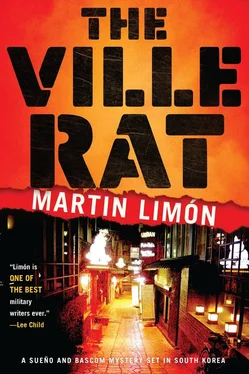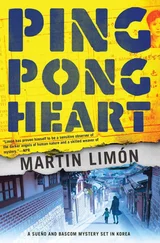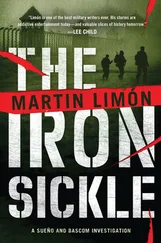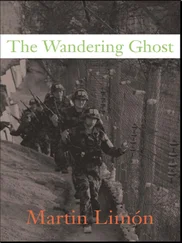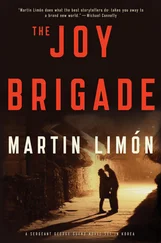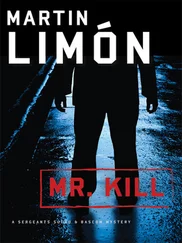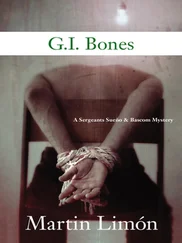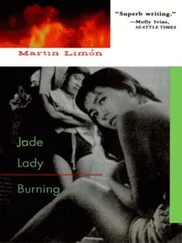Martin Limon - The Ville Rat
Здесь есть возможность читать онлайн «Martin Limon - The Ville Rat» весь текст электронной книги совершенно бесплатно (целиком полную версию без сокращений). В некоторых случаях можно слушать аудио, скачать через торрент в формате fb2 и присутствует краткое содержание. Год выпуска: 2015, Издательство: Soho Press, Жанр: Полицейский детектив, на английском языке. Описание произведения, (предисловие) а так же отзывы посетителей доступны на портале библиотеки ЛибКат.
- Название:The Ville Rat
- Автор:
- Издательство:Soho Press
- Жанр:
- Год:2015
- ISBN:нет данных
- Рейтинг книги:3 / 5. Голосов: 1
-
Избранное:Добавить в избранное
- Отзывы:
-
Ваша оценка:
- 60
- 1
- 2
- 3
- 4
- 5
The Ville Rat: краткое содержание, описание и аннотация
Предлагаем к чтению аннотацию, описание, краткое содержание или предисловие (зависит от того, что написал сам автор книги «The Ville Rat»). Если вы не нашли необходимую информацию о книге — напишите в комментариях, мы постараемся отыскать её.
The Ville Rat — читать онлайн бесплатно полную книгу (весь текст) целиком
Ниже представлен текст книги, разбитый по страницам. Система сохранения места последней прочитанной страницы, позволяет с удобством читать онлайн бесплатно книгу «The Ville Rat», без необходимости каждый раз заново искать на чём Вы остановились. Поставьте закладку, и сможете в любой момент перейти на страницу, на которой закончили чтение.
Интервал:
Закладка:
On the right bank stood Camp Pelham, protected by a ten-foot-high chain-link fence held up by sturdy four-by-four wooden beams and topped by rolled concertina wire. Every fifty yards or so, stretching all around the perimeter, were guard towers with floodlights and a wooden ladder leading up to a roofed platform. At each one, the muzzle of a .50-caliber machine gun poked out from behind a sandbagged firing position. Backed up against the fence were rows of round-topped tin Quonset huts, all of them painted the army’s favorite color: olive drab.
Ernie pointed straight ahead. “That must be one of the bridges over the River Seine.”
Actually it was nothing more than a utilitarian flat wooden bridge, similarly lined with chain-link fence and concertina wire. It led from Camp Pelham’s main entrance onto the compound proper. We climbed to our left toward the walkway that lined the river, slapping mud off of our hands and off the sides of our trousers.
“She could’ve emerged from any of these pathways,” Ernie said, “run down to the river and fallen in.”
“Or been pushed.”
“If it was nighttime and nobody witnessed anything, she could’ve been held under in the center of the river where there isn’t much ice, and she could’ve floated downstream.”
“Maybe,” I said. “But if that’s the case, if the perpetrator was a GI here in the village, somebody would’ve seen something.”
“People around here are frightened of all the things that go on at night. They keep their doors shut and their windows locked. And more importantly,” Ernie added, “they don’t trust the KNPs.”
When the Korean War ended with a ceasefire more than twenty years ago, Korea was economically flat on its back. People were desperate for food and shelter and medical supplies, and to make matters worse, the Syngman Rhee government was notoriously corrupt. That corruption included the Korean National Police, the one police force in the country. The citizenry didn’t trust them, and for good reason. The average cop on the beat was underpaid and looking for ways to supplement his income and support his family. Bribery was endemic. But with the advent of the Pak Chung-hee military dictatorship, the KNPs were trying-albeit slowly-to change their image. Trust was growing between the average citizen and their national law enforcement agency, but it still had a long way to go.
The KNPs were working their way up the river, knocking on every door, interviewing every farmer and housewife they could find. Within an hour or two they would reach the village of Sonyu-ri. Mr. Kill had called for more cops, but it would probably take them the better part of the day to interview all the people who lived along the banks of the river. North of Camp Pelham was nothing but a couple of other small military compounds and then countryside, so chances were good that the Lady of the Ice had entered the river somewhere around here.
“They have MP patrols here at night, don’t they?” Ernie asked. He meant in the village of Sonyu-ri.
I nodded.
“We’ll have to look at their duty logs and talk to them. Especially the gate guards.”
“That’s why Mr. Kill asked for us. He knows we can get that information a lot easier than he could.”
“Maybe,” Ernie said. He was staring up at the bridge. I turned to follow his gaze. An MP jeep had stopped in the middle of the bridge, and two MPs climbed out. They were facing out through the chain-link fence, staring at us, hands on the hilts of their .45s.
Ernie grinned and waved.
Neither of them returned the greeting. In fact one of them kept his hand low, just in front of his web belt, and flipped us the bird.
“Same to you, Charley!” Ernie shouted. Then he turned to me, still grinning. “Welcome back to the Second Infantry Division.”
“Second to none,” I replied.
– 2-
The main drag of Sonyu-ri was lined with tailor shops, brassware emporiums, nightclubs, and chophouses, all catering to American GIs and most sporting neon signs in both hangul script and even larger letters in English. It was mid-afternoon by the time we met with Mr. Kill again, this time at the Red Dragon Tea House. He ordered a green tea. Ernie and I both stirred cups of Folgers instant crystals.
“What did you find out?” he asked.
“Nothing,” Ernie replied. “The Camp Pelham MP commander chewed our butts for even asking questions.”
Kill frowned. “My superiors have contacted the Eighth Army commander.”
“It takes a while,” Ernie said, sipping on his coffee, “for shit to roll downhill.”
“You mean your Eighth Army commander hasn’t yet ordered the Second Infantry Division to cooperate with our investigation?”
“That’s exactly what he means,” I said. “And even though Division knows they’ll have to go along eventually, what they’re probably doing is trying to convince Eighth Army to assign their own MPIs to the case. Not me and Ernie.”
Mr. Kill set down his handle-less cup of tea. “That way they’ll have more control.”
“Exactly. If it turns out a Division GI was involved in this death, they’ll be able to present whatever evidence they have the way they want it presented.”
“How do you think this will turn out?” Kill asked us.
Ernie shrugged. “It’s up to the honchos.”
“When will we know?”
“Probably before close of business. They won’t want us staying up here if we’re off the case.”
“Tonight,” Kill said, “some of the MPs who were on duty last night will be on duty again, won’t they?”
“Most likely.”
“And the same gate guards?”
I nodded again.
“And the same dollies at the nightclubs,” Ernie said. “They stand at the front doors and watch everything that goes on.”
“They’ll trust you,” Mr. Kill said, “more than they would trust me. You know how to get them to open up.”
Ernie drained his coffee. “We can try,” he said.
“I’ve watched you work,” Mr. Kill said. “You two are better at that than any of your colleagues. The other American investigators are . . . How do you say . . . ?”
“Stiff,” I offered.
“Exactly,” Mr. Kill said.
“Corncobs up their butts,” Ernie added.
Mr. Kill gazed at him, puzzled.
“An old expression,” I said. “So you want us to stay up here tonight and investigate, whether we’re recalled or not?”
“Yes. I’m asking that favor of you.”
We could get in trouble for it, but Ernie and I had been in trouble before.
“How soon will you have the autopsy report?” I asked.
“A few days, but preliminary conclusions tomorrow.”
“And your canvassing so far?”
“We’ve found one housewife. She heard something. A man and a woman arguing. They were in one of the alleys here, heading toward the river. She had the impression that the woman was trying to get away from him.”
“Did she see anything?”
“No. There are so many drunks in this village at night. The local people stay very much behind closed doors.”
“What language were they speaking?” Ernie asked.
“She thinks English but she’s not sure.”
“Your men will keep working?” I said.
“Yes. And depending on what you find tonight . . .”
“By tomorrow,” I said, “you might have enough evidence to convince someone higher up to keep us on the case.”
He nodded. “That’s the idea.”
I was sometimes startled by Mr. Kill’s use of American colloquialisms and had to remind myself that he’d spent almost four years in the States.
“Even if we stay on the case,” Ernie said, “Second Division isn’t going to want to cooperate with us any more than they are with you.”
Читать дальшеИнтервал:
Закладка:
Похожие книги на «The Ville Rat»
Представляем Вашему вниманию похожие книги на «The Ville Rat» списком для выбора. Мы отобрали схожую по названию и смыслу литературу в надежде предоставить читателям больше вариантов отыскать новые, интересные, ещё непрочитанные произведения.
Обсуждение, отзывы о книге «The Ville Rat» и просто собственные мнения читателей. Оставьте ваши комментарии, напишите, что Вы думаете о произведении, его смысле или главных героях. Укажите что конкретно понравилось, а что нет, и почему Вы так считаете.
